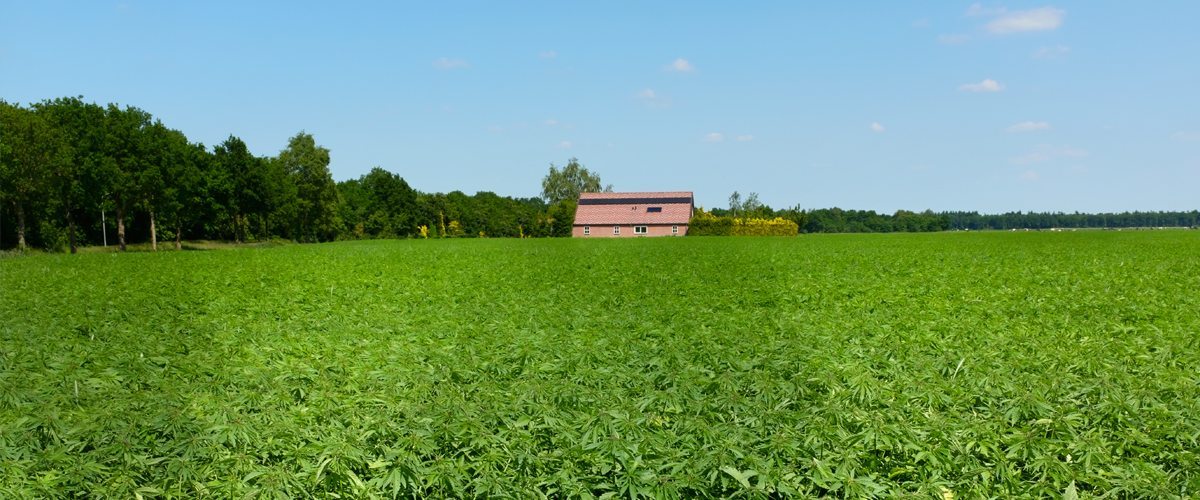The passing of a new Rhode Island bill allows individuals, firms, and corporations to legally cultivate hemp.
Anyone in the state of Rhode Island can legally grow hemp, due to an amended bill recently passed by the state’s legislature. The H8232 bill was originally going to apply only to universities and to the Narragansett Indian Tribe but was eventually changed to include everyone.
“What we have done with this bill is said that anyone that is qualified [can grow],” said House Health, Education, and Welfare Committee Chairman Joseph McNamara. “It’s not an exclusive license for the Narragansetts. They don’t have an exclusive right to this.”
Industrial hemp is a non-psychoactive, low-THC cannabis plant that is typically cultivated for food and fiber. It contains less than 1 percent of tetrahydrocannabinol (THC), the mind-altering chemical that produces a “high.” It can be used to produce nutritional supplements, paper, plastics, biofuel, cloth, and building supplies. Marijuana, hemp’s cannabis family member, is commonly grown for its psychoactive compounds. Both have shown to possess therapeutic properties. Cannabidiol (CBD), the natural, non-psychoactive compound found in high concentrations in hemp, has been found to reduce nausea, suppress seizure activity, fight inflammation, counter neurodegenerative disorders, and kill cancer cells.
The Rhode Island House passed the “Hemp Growth Act” on June 27 with a 71-0 vote. The Senate then passed it with a 26-7 vote the following day. The bill will now be sent to Gov. Gina Raimondo to sign into law. She has six days to sign or veto the bill.
Since 2014 when President Obama signed the Farm Bill into law, institutions of higher education and state department’s of agriculture with legalized hemp cultivation have been allowed to grow hemp for research and pilot program purposes. Twenty-four states have taken advantage of the bill and have passed legislation to allow some level of industrial hemp cultivation. Rhode Island will be joining other states, including Colorado, Oregon, South Carolina, Connecticut, Maine, North Dakota, and Vermont, that have legalized commercial industrial hemp cultivation.
Under the bill, the number of individuals, firms, and corporations that can apply for hemp growing licenses is uncapped. The law defines hemp as cannabis containing three-tenths of one percent THC or less. Industrial hemp will be treated like an agricultural crop and the Department of Business Regulation will be prohibited from adopting any rules that prevent a person or entity from growing or distributing hemp. Interested growers and handlers can apply for a license through the Department of Business Regulation 60 days after the bill becomes law. Licenses will cost $2,500 and will need to be renewed every three years.
During hearings regarding the bill, members of the Narragansett Indian Tribe argued that hemp has historically been used to make clothing and build houses. They requested exclusive growing rights so that they’d be better able to become economically self-sufficient.
Hemp was once a prominent crop in the United States, but the market was severely hit following the passing of the Marihuana Tax Act of 1937, which levied a tax on anyone dealing commercially with cannabis. Cultivation once again flourished during World War II, when the U.S. government encouraged domestic farmers to grow hemp to build military supplies. The passing of the Controlled Substances Act in 1970, however, made it illegal to grow hemp without a permit from the Drug Enforcement Administration. Through it all, hemp has remained legal to import throughout America, and the U.S. market for hemp was around $573 million in 2015.






